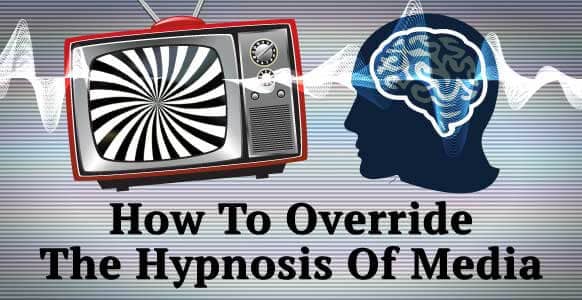
In this article, guest author Julien Richard discusses the 4 types of hypnosis, and gives useful pointers to help you identify which one suits your goals and personality.
Hypnosis can be a wonderful tool. From improving yourself with self-hypnosis to helping people overcome problems with clinical hypnosis – there’s a lot you can do with it.
But once you’ve decided that it’s something you want to pursue in life, one question still remains: What kind of hypnosis do you want to practice?
It seems silly, but it’s easy to treat hypnosis as one giant block of information and techniques when, in reality, it has many versatile aspects.
It’s important to have an idea of your goals with hypnosis to better fulfill your mission. With that in mind, let’s take a look at the main pillars of hypnosis and how you can figure out which one you want to work with.
1. Self-Hypnosis
Self-hypnosis is directed at people who want to improve themselves. Some people have no interest in hypnosis other than using it as a tool to achieve greater inner balance, success in life, or quick and easy relaxation – and that’s just fine.
This is where hypnosis is about yourself instead of others. It’s the aspect of hypnosis that focuses on your improvement by your own means.
You can teach it to others or just enjoy it yourself.
2. Clinical Hypnosis (Hypnotherapy)
Clinical hypnosis is best suited to those who find immense joy from helping other people overcome problems in their lives.
Whether it’s to stop smoking, lose weight, get rid of phobias, or almost any other problem a person has – hypnosis is a very powerful tool with a very high success rate. This is where the heart of clinical hypnosis really lies.
If all you care about is making money, then don’t do clinical hypnosis. Even though you might be financially successful in the area, you need to love helping people transform their lives in order to truly feel fulfilled. This should be your first and foremost reason for practicing clinical hypnosis.
3. Conversational Hypnosis
Now I know what you must be thinking: “Isn’t conversational hypnosis just a method of clinical hypnosis?” Well, yes and no. Yes because it can be used in clinical hypnosis as many of the greatest hypnotists have done so before, such as the legendary Milton Erickson, and our very own Igor Ledochowski.
And no because it’s not just used in the clinical setting.
Although direct hypnosis doesn’t have many applications outside clinical and stage/street hypnosis, conversational hypnosis is arguably the most flexible of all types.
This is because it’s already being used by everyone everyday – with most people not even being aware that they’re using it.
The fact that conversational hypnosis is indirect makes it extremely valuable to almost anything you do in life.
Whether it’s getting a better deal because you were able to use the hypnotic principles during a negotiation, or simply having a more pleasant interaction with people around you – conversational hypnosis holds the potential to transform every aspect of your life.
This is the kind of hypnosis that I think everyone should practice, no matter who they are. You can use it for clinical purposes if you want, no questions there.
But it’s also a vital skill to be successful in life because almost everything we do involves communication – which is mainly influenced by how good a conversational hypnotist you are.
4. Street And Stage Hypnosis
If you’ve always loved the spotlight, then this type of hypnosis might be for you.
Doing street or stage hypnosis is all about entertaining people. Even if hypnosis is a wonderful tool for healing and influence – it also has a plain and simple fun side.
Making a stranger smile in the streets because of a funny hypnotic suggestion can be all you need to make that person’s day better – and yours too.
It’s also a great way of practicing, because there’s nothing like hypnotizing a bunch of strangers in the streets to get your blood flowing, not to mention your skills honed!
Although both are forms of entertainment, it’s important to notice that street and stage hypnosis have some notable differences.
There’s a very impromptu feeling about street hypnosis, whereas stage hypnosis is more planned out beforehand. This doesn’t mean there isn’t planning in street hypnosis or surprises in stage hypnosis, just that one is more present in the other.
If you like preparing a spectacle to wow your crowd, then you might want to turn your ambitions to stage hypnosis.
If you just love that feeling of going into the streets and impressing people with your skill, then street hypnosis will provide all the thrill of quick inductions and funny situations.
Determining Your Hypnosis Goal
Now, it’s one thing to know the four main areas of hypnosis, but it’s another to determine which one is best for you. So let’s take a look at a few strategies to help you make that decision.
- What is Your Goal With Hypnosis?
This is the first question you must be able to answer, simply because it will define what you want to do with hypnosis. As we’ve seen before, if you want to entertain people then clinical hypnosis isn’t exactly the right choice. It’s not about one area being better than the other, but more about which one suits what you want to do and achieve.
- Try All 4 Areas For A Few DaysIf you can’t answer the first question, or have that doubt lingering in your mind, just try all 4 of them.Maybe you’ll realize you want nothing more than to study hypnosis and use self-hypnosis, or that the clinical setting is perfect for you.Since you’re just trying out every area, start small to not invest too much on something you don’t know is right for you. If you want to take a look at stage hypnosis, practice certain routines with friends and family to get a feel of the performance aspect of it.
For clinical hypnosis, help family or friends quit smoking, lose weight, eliminate phobias and so on.
In terms of conversational hypnosis, I believe you should always be practicing this because of its immense benefits no matter what you’ll do – so there’s really no specific way of trying it other than simply consciously practicing everyday.
As for street hypnosis, you can dive right in by just walking down the street and asking people if they’d like to be hypnotized and feel amazing. Once you have those experiences, it’ll be much easier to get a feel of what you like doing most with hypnosis.
- Do You Want To Make A Living Out Of Hypnosis?
The answer to this question will help you forge your path. You have your goal, you’ve tried the 4 main areas, and now you need to figure out if you want to do hypnosis for a living or not.The point here is simply to make things clear for yourself: if you want to live off of hypnosis, then you need to treat your craft as a business. You obviously don’t have to lose the fun aspect of it, but it’s a very different mindset than simply hypnotizing people for fun.And going back to what I discussed earlier, this goal also needs to be balanced with clinical hypnosis, as money shouldn’t be your primary incentive.Do you like doing stage hypnosis for small venues because you love the feel of it, or do you also want to pay your bills with your entertaining skills?
If you want to make money with hypnosis, you will have to work on marketing skills, business skills, maybe some networking, among other things.
If you like doing hypnosis but don’t really want to dive into this aspect of it, then it’s better to just enjoy it that way. Making this distinction (making money with it or not) will help you understand what each area has to offer, and it’ll be much easier to choose knowing what to expect.
Remember: One form of hypnosis isn’t better than the other. It’s just a matter of what you want to do with hypnosis. You might become the most knowledgeable hypnotist in history without making a penny from it, and you might make a lot of money with average hypnosis skills. It’s all a matter of personal preference.
- What Will Make You Happy?With all of that said and done, this is the question that matters most. It doesn’t matter if you think your goal is to help people with clinical hypnosis if you’ll be miserable doing it.Figuring out your goal with hypnosis is important because it gives you a direction, but if you’re not happy at the end of the day you won’t stick to it in the long run.The solution is to look at what you really want with the goal you’ve set in your mind and find ways of achieving it that make you happy. You don’t have to do clinical hypnosis to help people if you don’t like it, all you have to do is be creative.
You can always sell audios of hypnotic themes that people will buy and use to feel better, stop smoking, etc. This way, you fulfill your goal of helping people without having to do clinical hypnosis. This applies to every area we’ve seen here since hypnosis is such a flexible tool.
All in all, figuring out your kind of hypnosis should be fun. Since most hypnosis skills apply to each of these main areas, you can transfer them quite easily.
Preparing a stage hypnosis show is certainly different than preparing a client for a session in a clinical setting – but you’re hypnotizing people either way.
Don’t worry too much about making a definitive choice, because you can always come back and try a new area with the skills you’ve already been improving. Keep practicing while you choose the area you feel is right, and all the answers will come.











![Yogic Breathing For Hypnosis: 3 Easy Techniques To Ground & Relax Your Clients Before Inducing A Hypnotic Trance [Includes Infographic] Yogic Breathing For Hypnosis: 3 Easy Techniques To Ground & Relax Your Clients Before Inducing A Hypnotic Trance [Includes Infographic]](https://hypnosistrainingacademy.com/wp-content/uploads/2019/05/yogic-breathing-for-hypnosis.jpg)


![[ADVANCED GUIDE] How To Master Hypnotic Regression Therapy - Part I: Essential Principles To Profoundly Transform Your Subject’s Emotional Trauma [ADVANCED GUIDE] How To Master Hypnotic Regression Therapy - Part I: Essential Principles To Profoundly Transform Your Subject’s Emotional Trauma](https://hypnosistrainingacademy.com/wp-content/uploads/2016/09/hypnotic-regression-therapy-essential-principles.jpg)
